What is LaTeX?
LaTeX is a typesetting system used to create scientific and mathematical documents. It uses plain text with commands to specify the formatting of the text, which is then processed to produce beautifully formatted documents.
Why We Recommend Using LaTeX in Diagrams
- Precision and Consistency
LaTeX excels at creating high-quality mathematical expressions and symbols. When used in diagrams, it ensures that these elements are consistently formatted and aligned with the rest of your document. - Scalability
Diagrams created using LaTeX can be scaled to any size without losing quality. This is particularly important for printing or when diagrams need to be resized. - Complex Notations
For documents involving complex mathematical notation, chemical formulas, or other specialized content, LaTeX provides powerful tools to represent these elements in diagrams accurately. - Reproducibility
LaTeX is plain text, which makes it easier to collaborate on diagrams. - Portability
LaTeX files are plain text, making them easy to share and collaborate on. They are also platform-independent, so your diagrams will look the same regardless of the operating system.
Use Cases in Diagramming
- Academic Charts
When preparing research papers with complex mathematical content, LaTeX is essential for ensuring that diagrams match the high-quality formatting of the rest of the document. - Technical Documentation
For software documentation, electrical schematics, or other technical documents, LaTeX provides the precision needed for accurate and clear diagrams. - Presentations
LaTeX can be used to create consistent and professional diagrams for academic and professional presentations.
By using LaTeX in diagrams, you can produce precise, scalable, and consistent visual elements that enhance the clarity and professionalism of your documents.
How to Use LaTeX in ConceptDraw DIAGRAM
If you want to enter mathematical notation into a ConceptDraw DIAGRAM drawing, you will use an embedded LaTeX plugin.
- Select an object.
- Insert a LaTeX snippet.
- Exit text edit mode and activate selection mode.
- Click "Convert to LaTeX."
You can insert an inline formula by typing the equation inside the `$..$` symbols.
For example:
LaTex Snippet
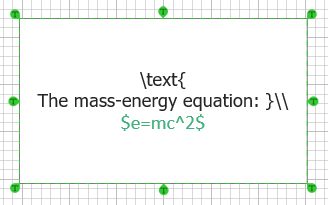
Conversion Result
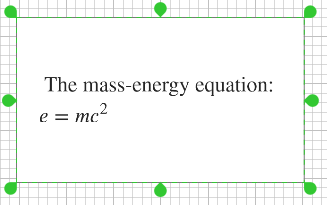
To obtain a numbered formula you need to use the {equation} environment.
For example:
LaTex Snippet
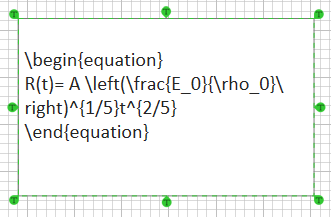
Conversion Result
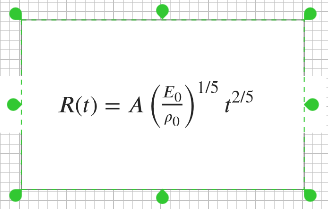
A matrix can be created using the matrix environment.
For example:
LaTex Snippet
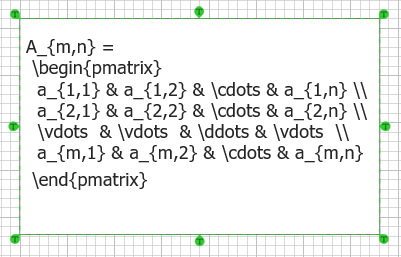
Conversion Result
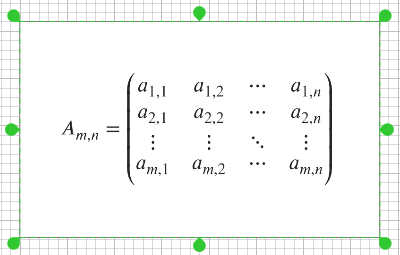
Detailed information about LaTeX syntax can be found here:
LaTeX/Mathematics
